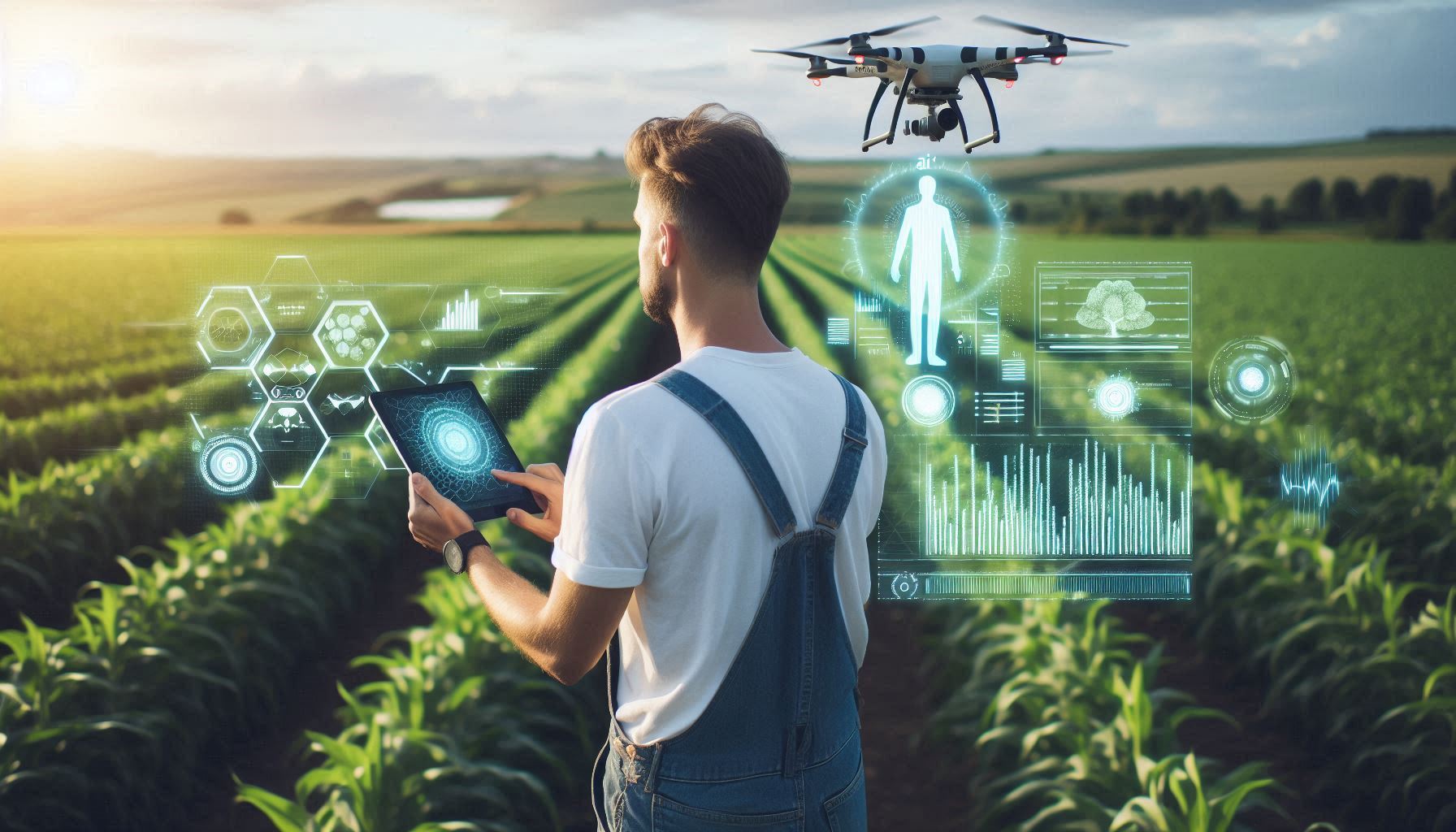What Can You Really Do with AI? Real-World Examples
- 1 min read
Artificial Intelligence (AI) has transitioned from a futuristic concept to an integral part of our daily lives and business operations. Its applications span various industries, enhancing efficiency, personalization, and decision-making processes. Let's delve into some compelling real-world examples of AI in action.

1. Healthcare: Revolutionizing Patient Care
AI is making significant strides in healthcare by improving diagnostics, treatment plans, and patient outcomes.
-
Medical Imaging: AI-powered algorithms can analyze medical images with remarkable accuracy, aiding in early disease detection and diagnosis. For instance, AI systems are being used to detect anomalies in radiology scans, leading to faster and more accurate interpretations. :contentReference[oaicite:0]{index=0}
-
Drug Discovery: AI accelerates the drug discovery process by predicting how different compounds will behave, significantly reducing the time and cost involved. Companies like CytoReason utilize AI to create computational disease models, assisting pharmaceutical companies in shortening clinical trials and reducing development costs. :contentReference[oaicite:1]{index=1}
2. Finance: Enhancing Decision-Making and Customer Service
In the financial sector, AI is employed to improve customer experiences and streamline operations.
-
Personalized Investment Advice: Wealth-management startups like Arta Finance have developed AI assistants capable of providing investment advice tailored to individual preferences, even communicating in Gen Z slang to appeal to younger investors. :contentReference[oaicite:2]{index=2}
-
Fraud Detection: Financial institutions use AI to detect and prevent fraudulent activities by analyzing transaction patterns and identifying anomalies in real-time. :contentReference[oaicite:3]{index=3}
3. Retail: Transforming Shopping Experiences
Retailers leverage AI to enhance customer engagement and optimize sales.
-
AI Shopping Assistants: Amazon's AI shopping assistant, Rufus, helps customers with product searches and recommendations, contributing significantly to the company's operating profit. :contentReference[oaicite:4]{index=4}
-
Personalized Recommendations: Online retailers use AI algorithms to analyze browsing and purchase history, offering personalized product suggestions that enhance the shopping experience.

4. Manufacturing: Streamlining Operations
AI optimizes manufacturing processes, leading to increased efficiency and reduced costs.
-
Predictive Maintenance: AI systems predict equipment failures before they occur, allowing for timely maintenance and minimizing downtime.
-
Quality Control: Computer vision systems powered by AI inspect products for defects, ensuring high-quality standards are met consistently.
5. Transportation: Enhancing Navigation and Safety
AI plays a crucial role in modern transportation systems.
-
Navigation Systems: AI-powered GPS apps analyze real-time traffic data to provide optimal routing suggestions, saving time and fuel.
-
Autonomous Vehicles: Companies are developing self-driving cars that use AI to interpret sensor data, navigate roads, and make driving decisions.
6. Customer Service: Improving Interactions
Businesses implement AI to enhance customer service operations.
-
Chatbots and Virtual Assistants: AI-driven chatbots handle customer inquiries, providing quick and accurate responses, thus improving customer satisfaction.
-
Sentiment Analysis: AI analyzes customer feedback to gauge sentiment, helping businesses address concerns proactively.

7. Marketing: Personalizing Campaigns
AI enables marketers to create more effective and personalized campaigns.
-
Targeted Advertising: AI analyzes user data to deliver personalized advertisements, increasing engagement and conversion rates.
-
Content Generation: AI tools assist in creating relevant content tailored to specific audiences, enhancing marketing efforts.
8. Education: Facilitating Learning
Educational institutions use AI to support both teaching and learning processes.
-
Personalized Learning: AI platforms adapt to individual learning styles, providing customized resources and exercises.
-
Administrative Tasks: AI automates grading and administrative duties, allowing educators to focus more on teaching.
9. Agriculture: Optimizing Farming Practices
Farmers employ AI to increase crop yields and manage resources efficiently.
-
Crop Monitoring: AI-powered drones and sensors monitor crop health, providing data that informs decisions on irrigation and fertilization.
-
Predictive Analytics: AI models predict weather patterns and pest infestations, helping farmers take proactive measures.
10. Entertainment: Enhancing User Experiences
The entertainment industry utilizes AI to personalize content and improve user engagement.
-
Recommendation Systems: Streaming services use AI to suggest movies and shows based on viewing history.
-
Content Creation: AI assists in generating music, art, and even scripts, pushing the boundaries of creative expression.
Conclusion
Artificial Intelligence is no longer a concept confined to science fiction; it's a transformative force across various sectors. From healthcare to entertainment, AI enhances efficiency, personalization, and decision-making. As technology continues to evolve, we can anticipate even more innovative applications of AI, further integrating it into our daily lives and industries.

Turkish Tech Renaissance: The Remarkable Growth of the IT Industry
Turkey's IT industry is rapidly growing, driven by its strategic geographic location, a young and educated workforce, and strong government support. The country's thriving startup ecosystem, emphasis on digital transformation, and increasing IT exports are positioning Turkey as a significant player in the global technology landscape. This growth trajectory highlights Turkey's potential and ambition in shaping the future of technology both domestically and internationally.

TURKIYE: The Rising Star of IT Outsourcing
Turkey is quickly becoming a key player in the IT outsourcing industry, thanks to its strategic location, skilled workforce, and cost-effective solutions. Positioned between Europe and Asia, Turkey offers businesses access to top-tier IT talent at competitive prices, with minimal language and cultural barriers. The country's commitment to data protection and innovation further enhances its appeal as a reliable and cutting-edge IT outsourcing partner.